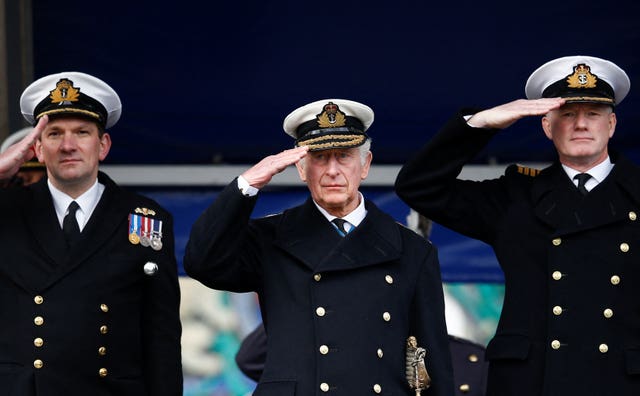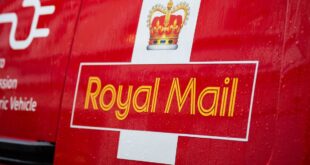The Prince of Wales was the guest of honour at the passing out parade at Britannia Royal Naval College.
Charles, who passed out from the very same college 50 years ago, saluted the new generation of officers at the home of Royal Navy Officer training in Dartmouth, Devon, on Thursday.
Among those passing out in front of the heir to the throne after completing 30 weeks of training were Officer Cadets Alistair Poat, from Somerset, and Ruairidh McBean, from Inverness.
OC Poat, who will be starting his flying training in the new year as an observer (navigator/weapons and sensor specialist) in the Fleet Air Arm, said his training had pushed him out of his “comfort zone”.
He added: “Coming from an engineering background I hadn’t had much experience of leadership responsibility. Training has given me a great chance to learn and hopefully set me up for a successful career in the Royal Navy.
“By far the most enjoyable part of training for me was our initial sea time. The early opportunity to get hands on and see what life was actually like in the fleet was amazing. It reaffirmed my reasons for joining, as it’s a completely different environment from Dartmouth.”
OC McBean said it was a “great honour” to have Charles in attendance at the passing out parade.
He added: “Those passing out should be immensely proud of their achievements to earn their place on the parade ground.
“Due to the ongoing pandemic, the support from families and friends has proved to be more important than ever, and I would like to thank them all for their incredible support to their loved ones whilst undergoing training.

“While 2021 has been a difficult year for everyone, I’m incredibly proud of the way that my staff have adapted and embraced new ideas, to protect the in-flow of new blood into the service.”
Charles spent five years in the Royal Navy.
He passed through the doors of Britannia Royal Naval College on September 16, 1971 – following in the footsteps of his father, grandfather, and both his great-grandfathers.
His time at Dartmouth was followed by service on the guided missile destroyer HMS Norfolk and two frigates, HMS Minerva and HMS Jupiter, he then qualified as a helicopter pilot flying Wessex Mk5 with 845 Naval Air Squadron from the Commando carrier HMS Hermes.
The prince’s final appointment in February 1976 was command of the coastal minehunter HMS Bronington for his last nine months with the Royal Navy.


